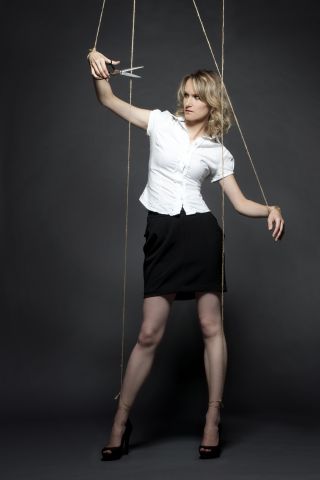Aging
Who Says Wanting Control is a Bad Thing?
Dealing with medical problems and aging
Posted March 4, 2015

Getting sick, having a body that does not work, just sucks. I spend much of my day talking with patients about what happens when physical selves seem to age too quickly or when illness usurps ordinary measures of being able to manage lives in a familiar way. Sometimes when I meet with someone new and we are talking about how a various bodily limitation reduces a sense of control, some people express a curious sense of embarrassment.
Let’s take a conversation I had recently. A woman became aware that she could not hear as well as she used to. A visit to the audiologist confirmed this and that she would need hearing aides. This woman was eager to get her hearing device, with the hopes that it would completely fix her hearing loss. As anyone with hearing aides knows, assistive devices can only do so much—hearing rarely returns to normal. My patient was describing how frustrating it was to be in a crowded restaurant and not being able to hear her friends and how humiliating this was. I commented that it is hard to feel in control when one cannot hear. She looked down and seemed ashamed. She asked, “Does that mean I am a control freak?” She seemed to assume that by my describing her wanting to be in control I was assuming something was wrong with her.
Such examples occur often in my practice and I spend a lot of time explaining that control is a normal thing. We all want it. The trick is what to do when we don’t have it.
Let me be clear; when I talk about the adaptive elements of wanting control I do not mean to imply that all forms of taking control are okay. Specifically, excessive attempts to dominate others or have power over them are an unsuitable way to connect and may even be abusive. Further, we all know people for whom needing to feel that they are managing their environment wreaks havoc on any ability to have fun or to relax.
Yet, when it comes to our bodies, wanting to feel in charge is completely normal. But as we age it becomes less likely that we can control our bodies. We get old, we get sick. We have less control over our looks and despite the tools available to those with money (meaning plastic surgery, personal trainers, expensive facials) we cannot simply erase time.
And though we all intellectually know that we cannot control our bodies in the ways that we wish, most of us keep trying.
The fact is, aging and illness fly in the face of normal childhood development. Though we can’t remember crawling or walking for the first time, this phase of development is as important physically as it is psychologically. Unless we are born with an illness we come to expect that our bodies are capable of great things—and this only gets more exciting. We can walk! We can tell our parents to leave us alone while we put our own coat on! And later in childhood some people discover sports and the amazing ways our bodies let us excel and get attention. And then much later when the special gift of sexuality is discovered, we realize how truly incredible the body is in delivering pleasure.
In other words, very few of us are really prepared for aging or illness. It just does not make sense based on our unconscious expectations of our body. So when people struggle with how their bodies let them down and want as much control as possible, I see this as normal.
The best way of coping with illness or aging is to recognize and harness the ways that one can gain control and to realize what can no longer be managed.
Follow me on Twitter for health and psychology related posts: @TMcGreenberg


